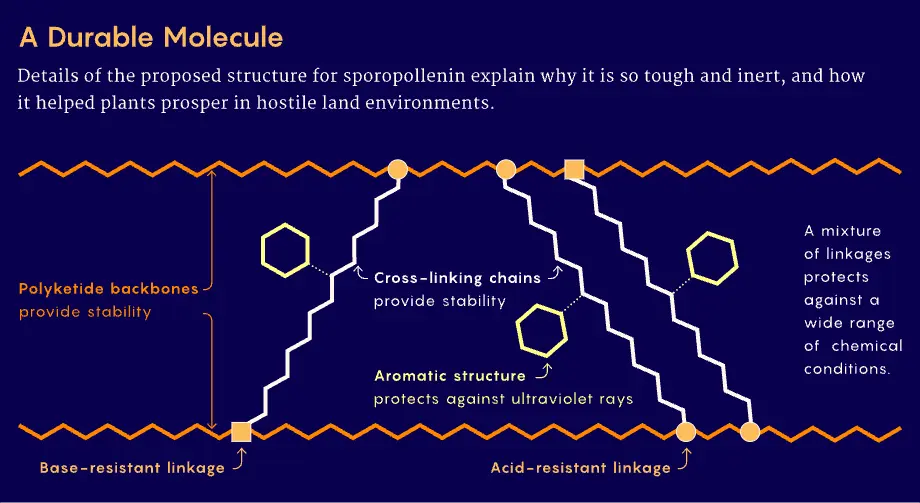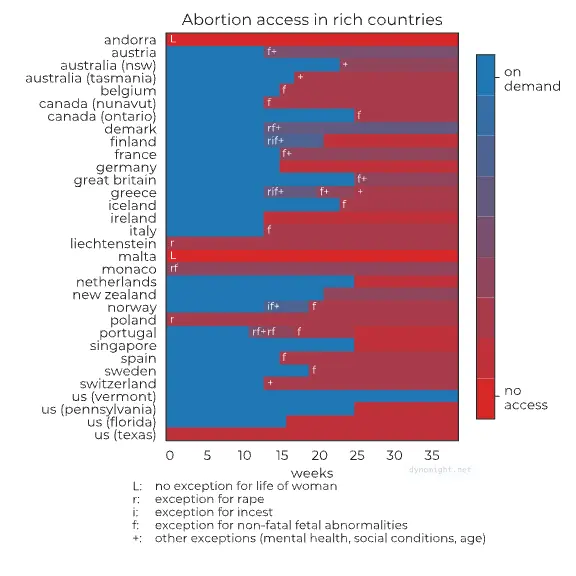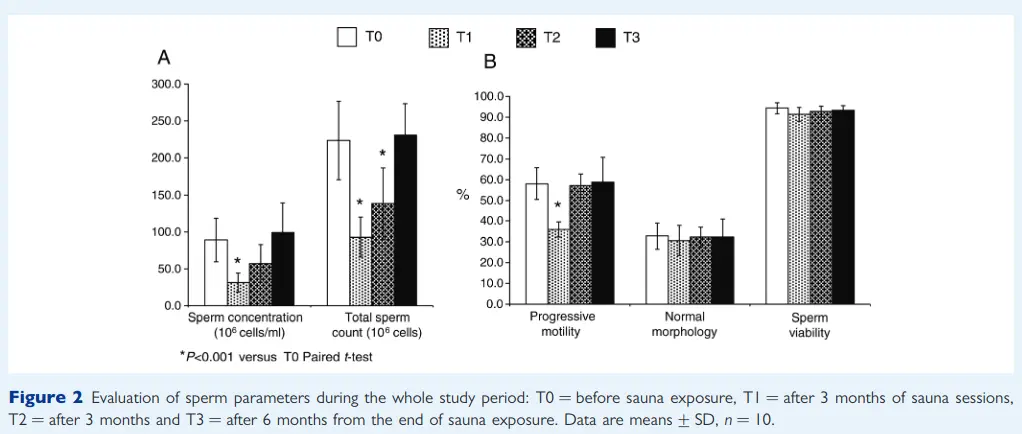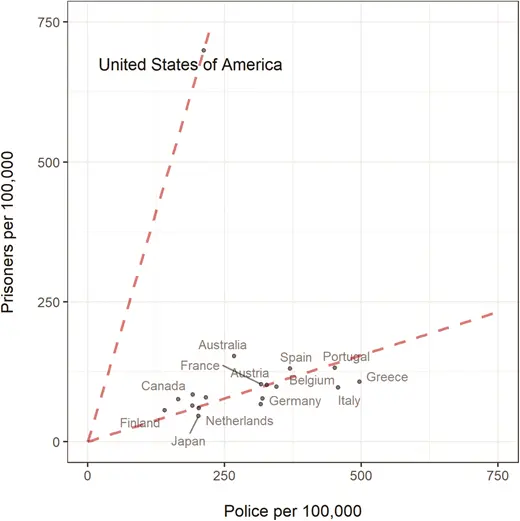Jul & Aug '22

-
World’s oldest tree reveals the largest solar storm in history.
-
Legalising recreational marijuana decreases a state’s birth rate by an average of 2.78%.
-
He dropped out to become a poet. Now he’s won a Fields medal.
-
In 1970, just 1 in 5 U.S.-born PhD graduates in economics had a parent with a graduate degree. Now? Two-thirds of them do.
-
Comparing the Webb Telescope to the Hubble.
-
The perils of audience capture.
-
How Shinzo Abe reshaped Japan.
-
How the ‘diamond of the plant world’ helped land plants evolve.

A 2016 paper found that because of the robustness of sporopollenin, spores maintained their stability in diamond anvils at pressures of 10 gigapascals, or 725 tons per square inch.
-
Drone airspace: A new global asset class.
In 1980, McKinsey & Co. advised AT&T, their client, that US mobile phone subscriptions in 2000 would top out at less than 1 million. Two years later, in 1982, with company breakup imminent, AT&T executives volunteered to federal antitrust officials to forfeit their minuscule, money-losing mobile phone business. Unfortunately for AT&T shareholders, McKinsey analysts were off by two orders of magnitude – there were more than 100 million mobile phone subscribers in 2000.
-
Book Review: McNamara’s folly.
What McNamara failed to see was that many Project 100,000 were incurably limited. They were indeed “brain-poor” for life, with no hope of making huge mental improvements. No amount of McNamara’s audiovisual gadgetry could transform them from slow learners into bright, or even average, citizens. But wait a minute: hadn’t psychologists discovered that even people with serious mental limitations were capable of absorbing much more training than society had previously thought possible? Yes, and it was a valuable insight: mentally limited persons were not hopeless—they were capable of growth and maturity. But here was the problem: they might be able to learn how to make change, but that didn’t mean that they could someday create a spreadsheet. They might be able to learn how to put together parts in a factory assembly line, but that didn’t mean they could someday operate a 105mm howitzer in battle. There was no hope of dramatically lifting the IQ of Project 100,000 men who missed a test question like this: “If a farmer had a bucket of 24 eggs and he stumbled and broke half of them, how many eggs would he have left?”
The men who missed such questions were slow learners who were able to live happy, productive lives if they had a protective environment—a cozy haven with loving parents, helpful friends, and sympathetic bosses. Such was not the case for many Project 100,000 men.
-
Built to last: Continuity in Japanese genetics.
-
Is the United States exceptional?
If one, for instance, compares the EU (far closer to the United States collectively in land area and population) rather than its exceptional smaller components the difference becomes obvious: the EU average GDP per capita – despite being a union made up almost entirely of developed countries – is still 30% lower than the United States.
Russian logistics was unable to cover the trip to Kyiv (about 450 miles); the United States, by contrast, has conducted major military operations in Kuwait (1991, 6,500 miles from Washington, D.C.), Iraq (2003-2017, roughly the same distance) and Afghanistan (2001-2021, c. 6,900 miles). No other country today is capable of global power projection on remotely the same scale, at least for now.
The World Bank is headquartered in Washington D.C. and the United States has the largest voting share in its governance (followed closely by US allies Japan, Germany, France and the UK); the IMF is likewise headquartered in D.C. and every single one of its first deputy managing directors has been an American, without exception (but Stanley Fischer had dual citizenship), while the managing directorship rotates.
-
Classifying abortion access across the rich world.

Andorra considered legalizing abortion in 2018, which led to a strange situation: For that to happen, it would have to be approved by the co-prince of Andorra who also happens to be a Catholic bishop. But Pope Francis threatened that if the bishop approved it, he would immediately be expelled from the church, which would lead to his abdication as co-prince, putting Andorra in a governance crisis and endangering its independence from France and Spain. They did not legalize abortion.
-
Book review: The man from the future.
Manhattan Project physicist Stanislaw Ulam contracted a case of viral encephalitis, an inflammation of the brain. His doctors told him that he should “rest his brain”, ie avoid thinking too hard. A desperate Ulam tried to distract himself by playing solitaire, but couldn’t help wondering about the probabilities of winning. Failing to solve the problem with any statistical trick then known, he was unable to prevent himself from developing what is now called the Monte Carlo method, which proved instrumental in the development of the hydrogen bomb and much of modern statistics.
-
Heat & the great balls decline.

Decrease in spermatogenesis even 3 months after sauna sessions.
-
Couples who cohabited (prior to marriage) were 15% more likely to get divorced than those who did not.
A Stanford study cited other research finding that the link between cohabitation and divorce was especially strong for women who cohabited with someone besides their future husband.
Given that most young adults today who cohabit do so with someone besides their future spouse, “they always see leaving as an option,” she says. And once they marry, that “mindset doesn’t really leave — they always can see that there’s a door to leave … they can leave at any time. Whereas since we didn’t (have previous cohabiting relationships), that’s just not an option we would think of.”
-
Why China’s aerospace experts have become Xi Jinping’s new political elite.
-
Dark matter doesn’t exist.
But a simple test suggests that dark matter does not in fact exist. If it did, we would expect lighter galaxies orbiting heavier ones to be slowed down by dark matter particles, but we detect no such slow-down.
-
Quality of RNG significantly affects results of Monte Carlo simulations.
-
Understanding Jane Street.
-
Taleb’s essay on Christianity.
Consider that in Semitic languages, din means law, which in Arabic translates into religion: the older and youngest Abrahamic religions were just law (one, local; the other, universal). But in Christian Aramaic, it is the word nomous from the Greek nomos that refers to law, separate from religion. For Jesus separated both domains with the “render unto Caesar what belongs to Caesar”; some additional work came later by Augustine to formalize how one deals with the temporal, the other with the spiritual, the afterlife, etc. This brought a natural boundary between State and Church.
Ironically, modernists fall for what I have called the opiate of the middle classes, that is social science and stock market speculation. They refuse religion on rational grounds, then fall for economic forecasters, stock market analysts, and psychologists. We know that economic forecasts work no better than astrology; stock market analysts are more pompous but much less elegant than the bishop, and psychology papers do not replicate meaning their results do not hold.
-
Rapamycin is used for immunosuppression in organ transplant patients and trials are underway to test its efficacy in treating ALS, Crohn’s disease, and metastatic and advanced cancers.
Cells need nutrients to stay alive. This is where the protein mTOR springs into action, like a traffic policeman coordinating the metabolic decisions in a cell. When it receives messages from other proteins about there being enough nutrients — sugars, fatty acids, amino acids, for instance in the cell, it gives the cell the green signal to divide and proliferate. When nutrients are lacking, it flashes the red light, ordering the cell to stop making merry.
This process is great for healthy cells but can have a disastrous effect on cancer cells that grow rapidly. Here is where rapamycin comes to the rescue. It latches on to mTOR and tricks the cell into believing that there aren’t enough nutrients to grow.
-
Notes on the Balkans.
[On Macedonia] According to multiple Bulgarians I talked to, Serbia has been running a long-standing propaganda campaign in Macedonia to convince the Macedonians that they are, in fact, Macedonians, with some sort of vague nonsensical connection to Alexander the Great. In reality, Macedonians are just Bulgarians with a slightly different accent, but they’ve been brainwashed by textbooks and school curricula and tv shows, or something.
[On Ceaușescu] In 1981, he announced that Romania would pay off its entire national debt. It did so in 1989, becoming literally the only modern state to ever do so … Ceaușescu accomplished this by dramatically curbing consumption throughout the entire socialist economy, pulling Romania into a dramatic sustained economic crisis complete with the worst basic good shortages seen outside war-time behind the Iron Curtain.
-
HS2 costs £100Bn.
-
On how housing shortages affect everything.
-
The mineral conflict is here.
An analysis by the energy consulting firm Wood Mackenzie found that if EVs accounted for two-thirds of new car purchases by 2030, it would require dozens of new mines that are the size of the world’s largest in each key category. These mines are not currently being planned. And per the IEA, it takes an average of 16 years from initial discovery to open a mine.
-
Toxoplasma-infected subjects are more attractive than non-infected ones.
We found that infected men had lower facial fluctuating asymmetry whereas infected women had lower body mass, lower body mass index, a tendency for lower facial fluctuating asymmetry, higher self-perceived attractiveness, and a higher number of sexual partners than non-infected ones. Then, we found that infected men and women were rated as more attractive and healthier than non-infected ones.
-
Course sea spray can reduce lightning by up to 90%.
-
Skin exposure to UVB light induces skin-brain-gonad axis & sexual behavior.
UVB triggers a skin-brain-gonadal axis through skin p53 activation. In humans, solar exposure enhances romantic passion in both genders and aggressiveness in men, as seen in analysis of individual questionaries, and positively correlates with testosterone level.
-
Under-policing in America.

-
Epigentic ‘clocks’ predict animals’ true biological age.
But telomeres did not pan out as an aging clock. The correlation of telomere length with age and mortality is weak in humans and nonexistent in some other species. “Telomere [length] does not actually track age. It just tracks cell proliferation,” said Ken Raj, a principal investigator at Altos Labs.
-
Everyone is moving to the metropole.
The U.S. of 2050 will have a median age of 41. It will be decisively younger than China and other East Asian states and will edge out Iran, Turkey, Russia, Mexico, and even Brazil. The so-called BRICS countries built a coalition on marketing themselves as part of a young, rising world. In the battle of youth, the U.S. will beat all except South Africa. Even more importantly, the U.S. will have large and growing numbers of young workers, many more than other states of roughly similar median age.
-
Yao Yang’s “rebuilding China’s political philosophy”.
-
There are 12 notes in-order to accomodate the fourths & fifths between 2 octaves.
-
Why was there no Roman industrial revolution?